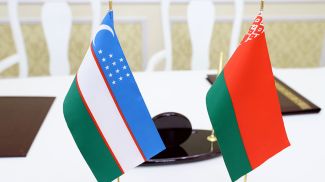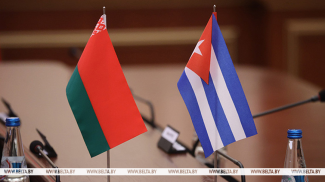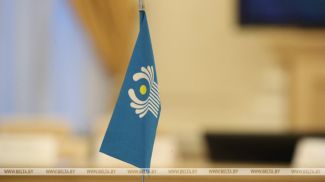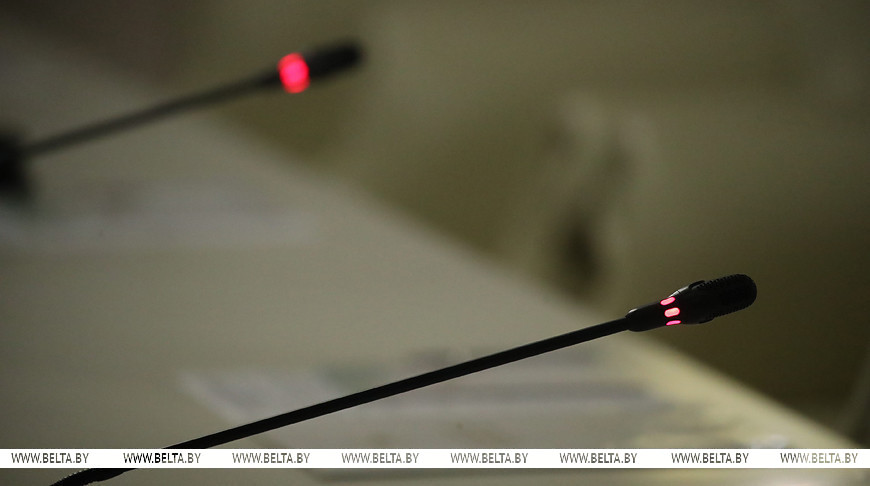
An archive photo
The document outlines principles of state sovereignty, peaceful settlement of international conflicts, and enhanced global stability, while also highlighting the need to intensify political dialogue, broaden economic and humanitarian cooperation among member states of the Non-Aligned Movement, and unite efforts to achieve sustainable development. The member states unanimously opposed the use of unilateral coercive measures. The document also reflected Belarusian initiatives on combating human trafficking, recognizing diverse development paths, and protecting the interests of middle-income countries.
During his visit to Kampala (Uganda), the Belarusian foreign minister held a number of bilateral meetings with representatives of the government of Uganda and colleagues from the Non-Aligned Movement countries. The meeting with the Ugandan Vice President Jessica Rose Alupo focused on drawing up a bilateral cooperation roadmap with concrete projects, including joint ventures in agriculture, setting up joint tractor and agricultural machinery production plants in Uganda, infrastructure development, and light industry ties. An agreement was reached on an upcoming visit of an Ugandan delegation to Belarus headed by Uganda’s vice president. The parties expressed their commitment to developing long-term and strategic interaction and agreed to hold a meeting of the intergovernmental commission on trade and economic cooperation in the near future.
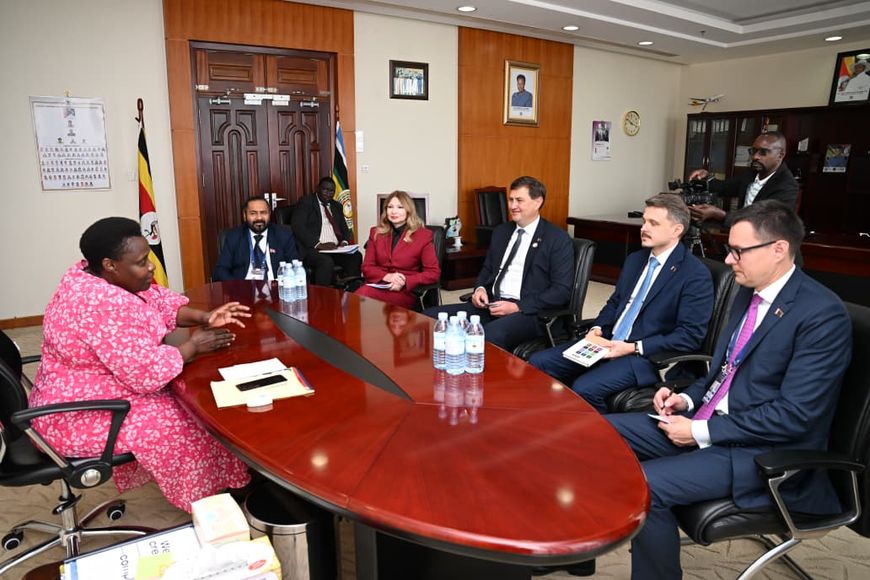
During the negotiations with Uganda’s State Minister for Animal Industry Bright Rwamirama, the parties discussed the progress in implementing the agreements made during his recent visit to Belarus. The parties agreed to accelerate the implementation of the Memorandum of Understanding in the field of food security. In particular, the parties agreed to use Belarusian technologies for further mechanization of Ugandan agriculture, including for milk preservation and dry milk production. Consideration was also given to the possibilities of supplying Belarusian refrigeration and milking equipment and creating joint agricultural machinery assembly productions in Uganda.
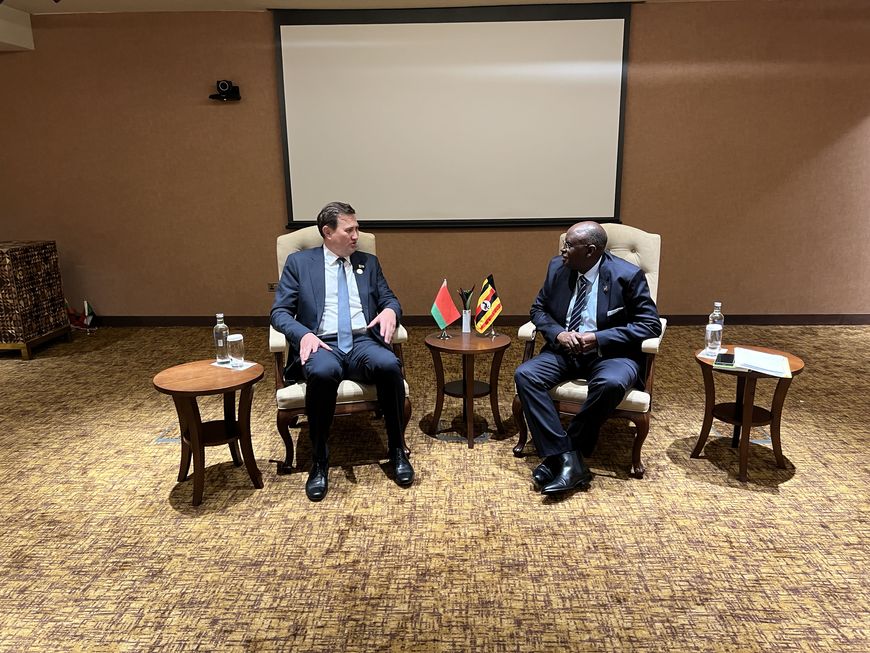
Belarusian Minister of Foreign Affairs Maxim Ryzhenkov and Iranian Foreign Minister Abbas Araghchi focused on the further intensification of political contacts, trade and economic interaction, and cooperation in international organizations. The Iranian side proposed dates for holding a meeting of the intergovernmental commission on trade and economic cooperation in Minsk. The Iranian foreign minister confirmed his readiness to make a visit to Belarus in the near future. The parties also discussed the schedule of mutual high-level visits. The Iranian side also stated that it is eager to host a delegation from the Belarusian Ministry of Transport and Communications to explore prospects for cooperation in international logistics and transport infrastructure. The Iranian side supported Belarus’ initiative on Eurasian security and confirmed its participation in the 3rd Minsk International Conference on Eurasian Security.
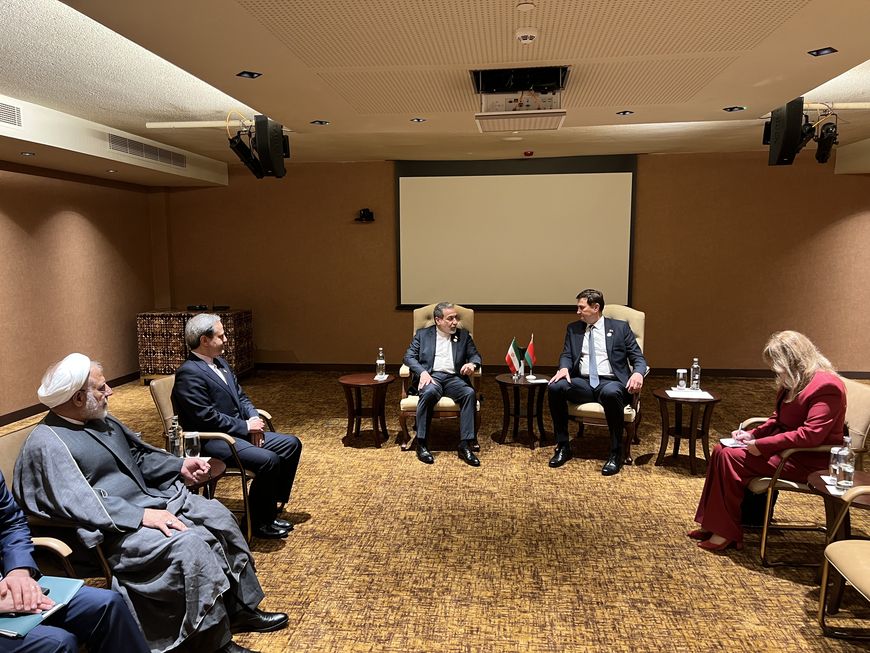
During the meeting with India’s Minister of State for External Affairs Kirti Vardhan Singh, the parties noted the high level of trust in the interaction between the two countries. The parties discussed organizing high-level visits, including within the framework of regional associations events, and expanding trade, economic, and investment ties: specifically, convening a meeting of the intergovernmental commission on trade and economic cooperation in Minsk before year-end and implementing joint projects in industry, science, technology, and education. An agreement was reached to develop a joint roadmap for all areas of bilateral cooperation of mutual interest. In addition, the need to intensify work on improving the legal framework was noted. India also confirmed its participation in the 3rd Minsk International Conference on Eurasian Security.
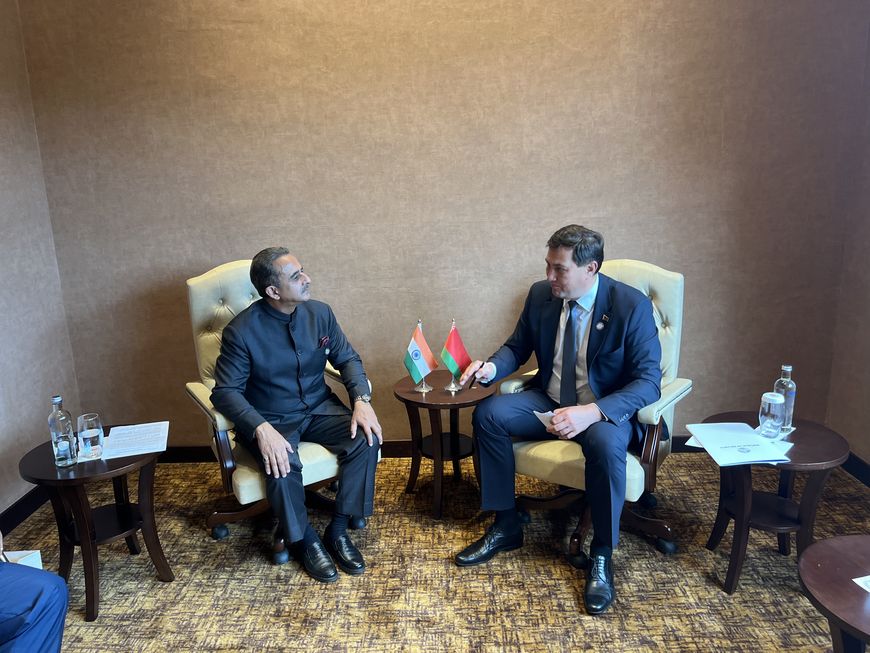
MFA photos




